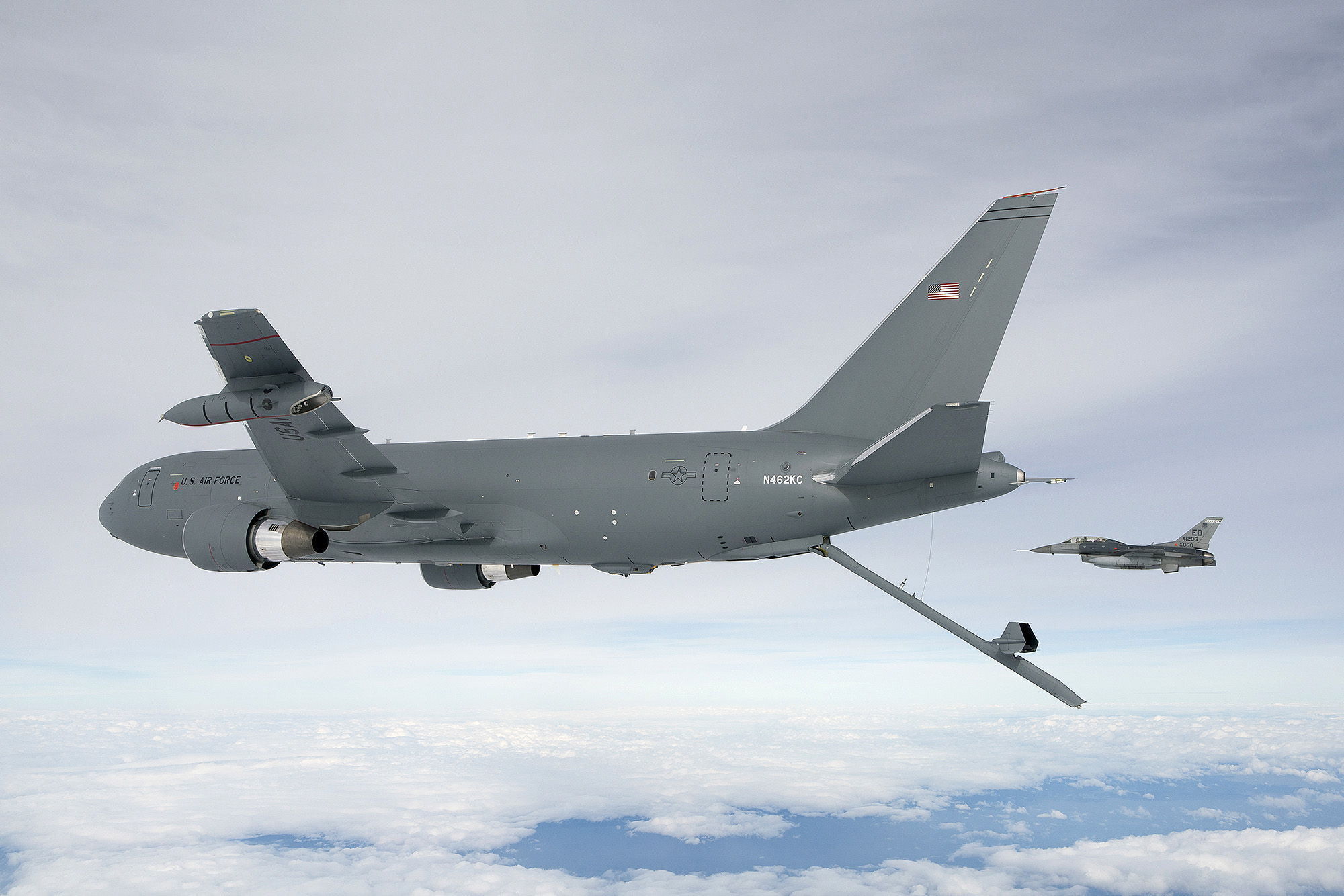EVERETT — The Boeing Co. started the year with mixed results: Overall revenue was up 2 percent to $22.6 billion — buoyed by greater defense-side income. But losses from the KC-46 tanker and 747 programs kept company earnings below Wall Street’s expectations.
During a teleconference call with investment analysts and reporters Wednesday, Boeing executives were upbeat but said further cost-cutting would be necessary.
The company is committed to cost-cutting and increasing profits, Boeing chief executive and president Dennis Muilenburg said during the call.
The Chicago-based company’s stock price closed on Wednesday at $137.08, up 3.8 percent.
Boeing wrote off $243 million before taxes to cover cost overruns on the KC-46 aerial-refueling tanker program, which it is developing for the U.S. Air Force. The company has spent about $1.5 billion in overruns so far.
The latest charge covers the cost of rework needed on tankers already in production.
“We are not discovering new technical issues,” Muilenburg said during the call.
The first seven production tankers are in various stages of completion at Boeing’s Everett plant. The supply chain is already working on the next eight, he said.
That does not include the program’s four test airplanes. The fourth and final one flew Monday. Like the first test plane, it is a non-military version, called a 767-2C, which does not have a refueling system.
Boeing is on track to meet the contract’s August 2017 deadline for delivering the first 18 combat-ready tankers to the Air Force, Muilenburg said.
The Air Force figures Boeing has a “moderate risk” of delivering late, an Air Force spokesman said earlier this month.
Boeing also took a $70 million pre-tax charge on the 747-8 program due to weak sales. The latest version of the iconic four-engine jet has been unpopular with customers. The low demand means Boeing likely will not recoup the development costs.
Boeing said it had profit of $1.83 per share. Earnings, adjusted for non-recurring gains, came to $1.74 per share. That is slightly below Wall Street expectations of $1.81 per share, according to a survey of analysts by Zacks Investment Research.
The company would have beat analysts consensus if it had not taken the charges.
The results were “a mixed bag,” Rob Stallard, an analyst with RBC Capital Markets, wrote in a note to investors Wednesday. “Whilst you can’t sugar coat yet another tanker and 747 charge as good news, at least cash flow came in better than expected” for the quarter.
The charges likely were not surprises, said Seth Seifman, an analyst with J.P. Morgan. That would mean Boeing Commercial Airplanes did not perform as well as executives had expected.
The company is committed to improving commercial-airplane profits in the next few years, in large part by cutting expenses and finding new revenue.
“For Boeing to continue winning in our second century of business, it is imperative that we seize the initiative to get on and stay on a steep and steady glide path to lower-cost performance,” Muilenburg said.
“We intend to play offense,” pushing cost savings throughout the company and its supply chain, he added.
The efforts will make Boeing more competitive, increase cash flow, raise shareholder value and allow more investment back into the company, he said.
The company plans to cut 4,500 of 160,000 jobs by mid-year, mostly from Boeing Commercial Airplanes through retirement and buyouts. Layoffs could come in the second half of the year if more cuts are needed, BCA president Ray Conner said earlier this year.
Boeing is also expanding goods and services for airplanes already in use. That includes spare parts sales, modifying and converting in-service airplanes, and services taking advantage of the greater amount of data modern jetliners generate.
The company is not crowding out suppliers already providing parts and services, Muilenburg said.
The “aftermarket” is growing enough to accommodate Boeing’s expansion without hurting its suppliers, he said.
However, Boeing did take business from supplier Spirit Aerospace earlier this year. Boeing took back lucrative spare parts work, opting instead to supply directly to airlines and other operators.
Talk to us
> Give us your news tips.
> Send us a letter to the editor.
> More Herald contact information.
























